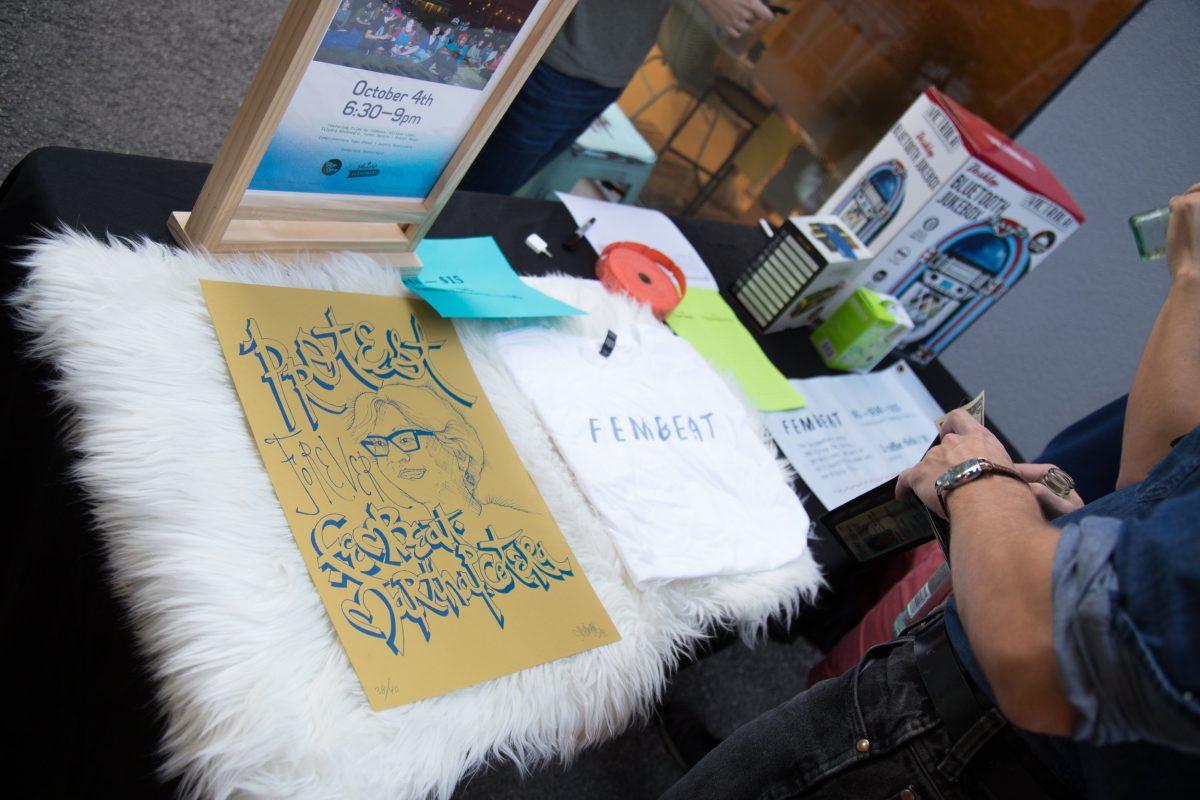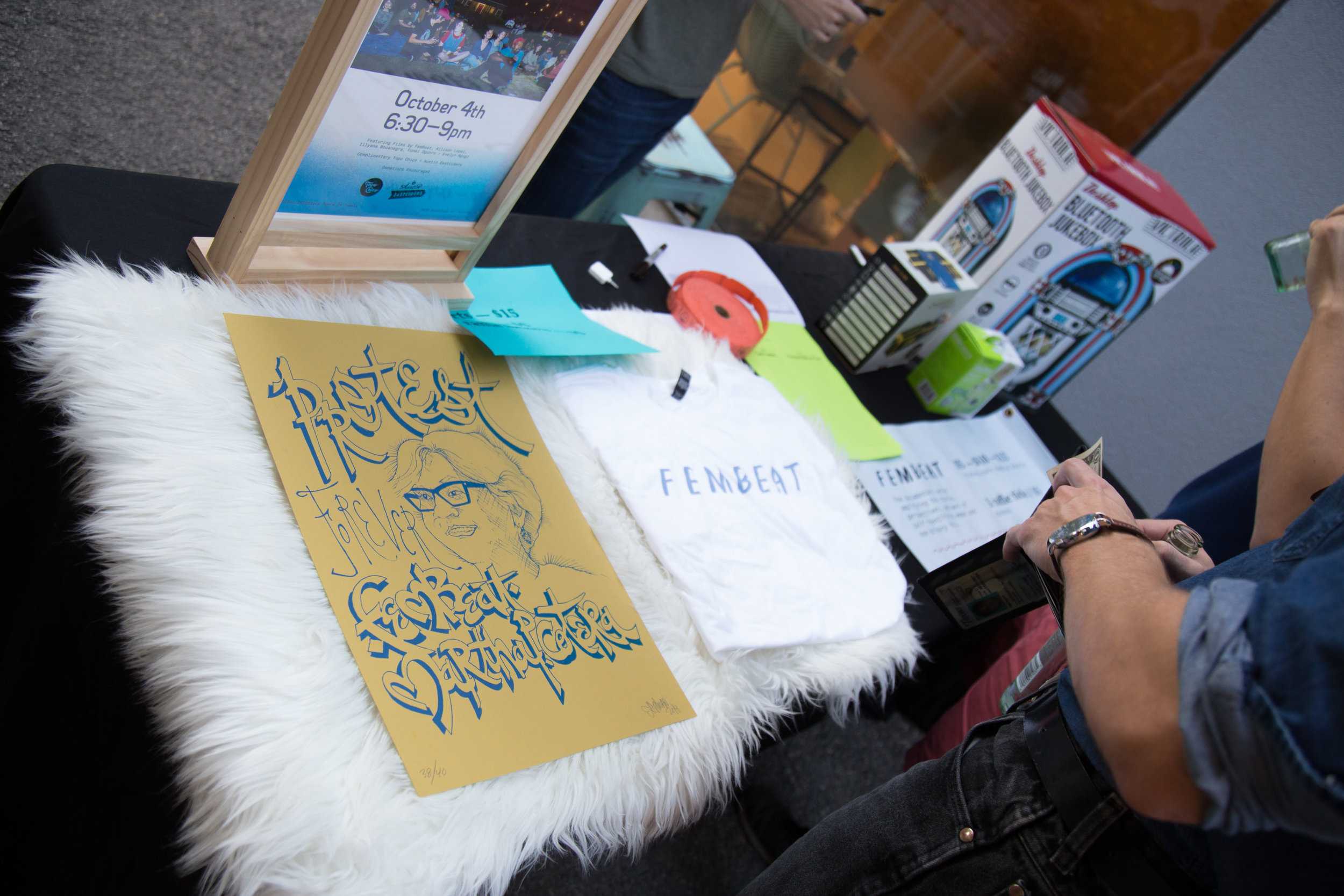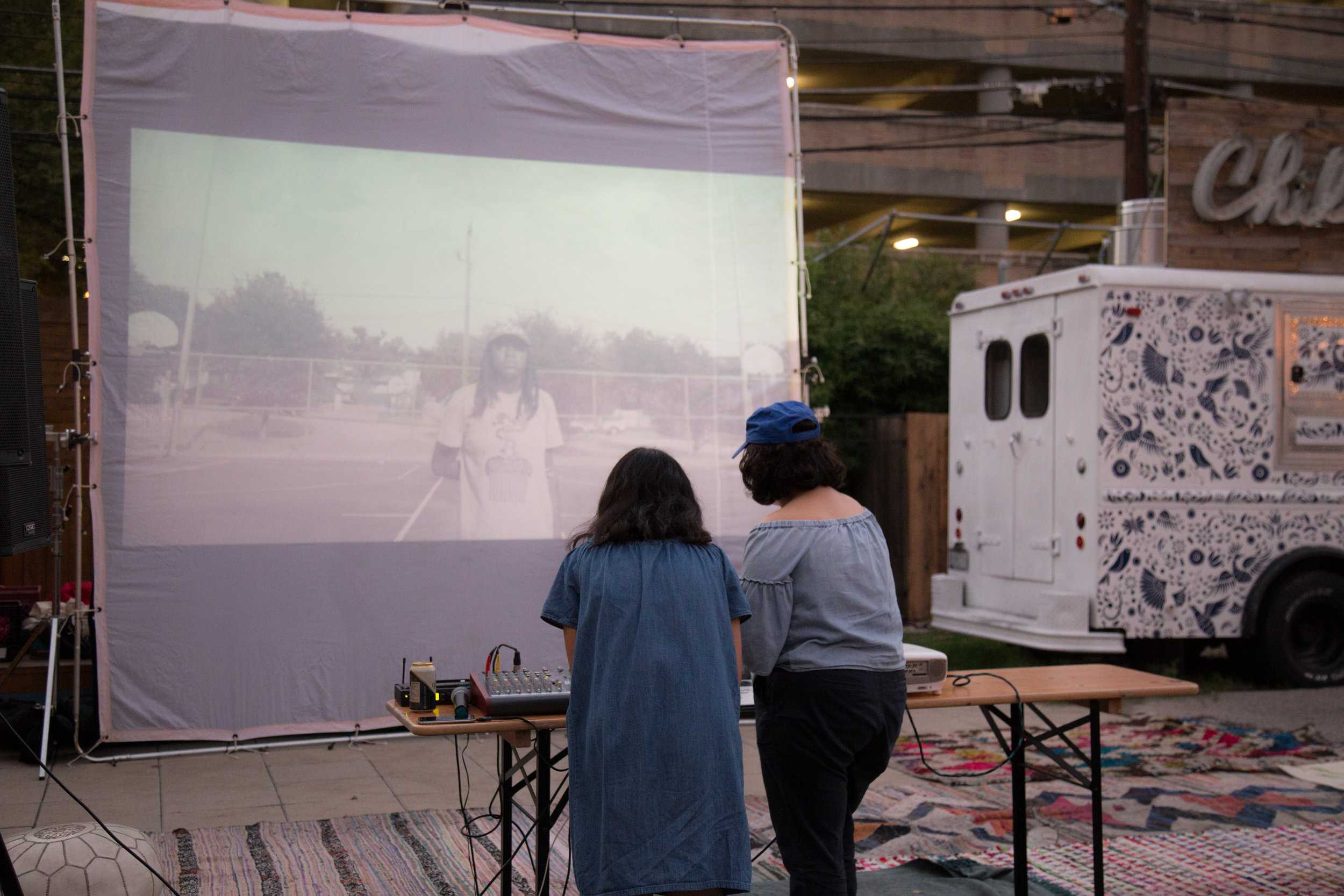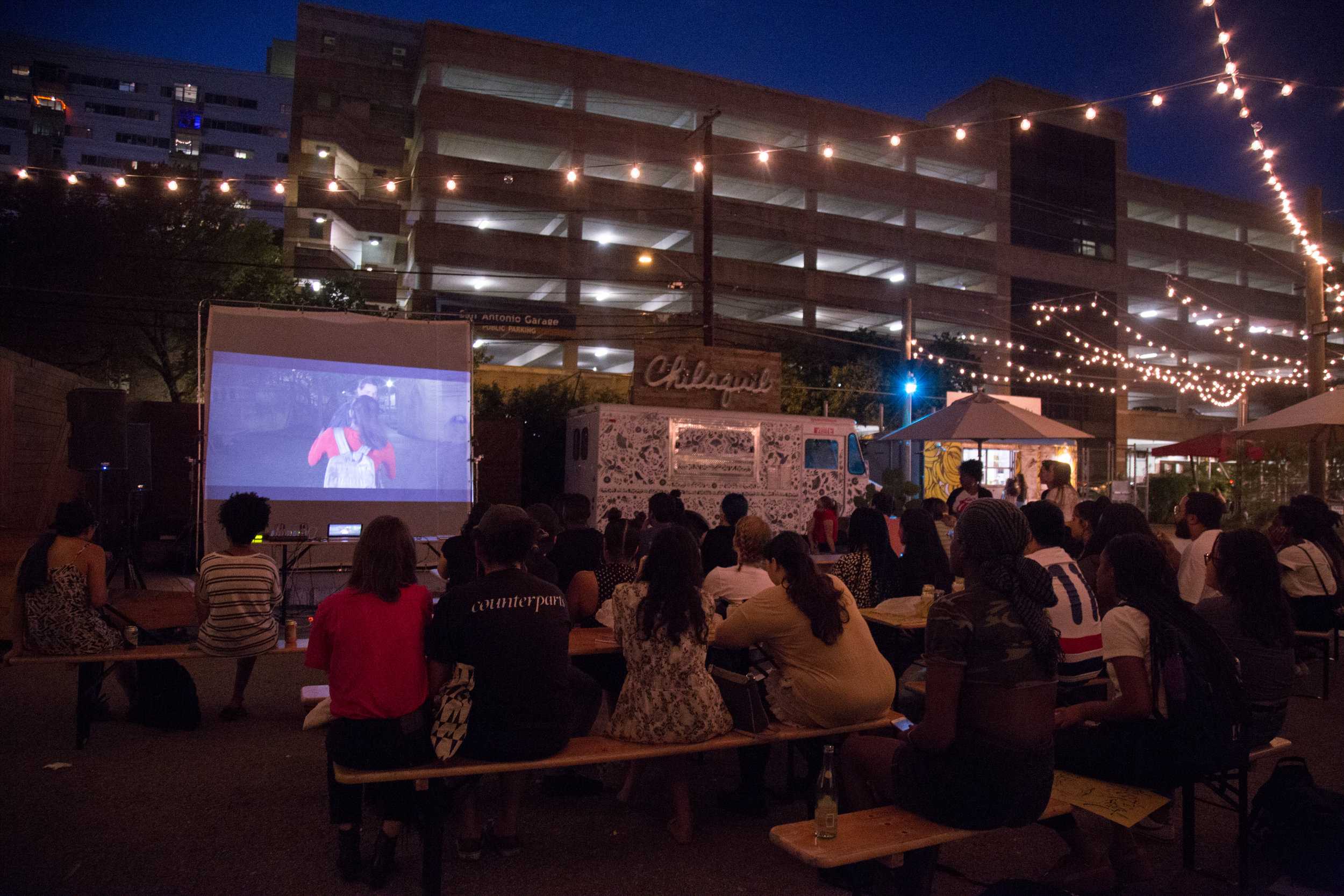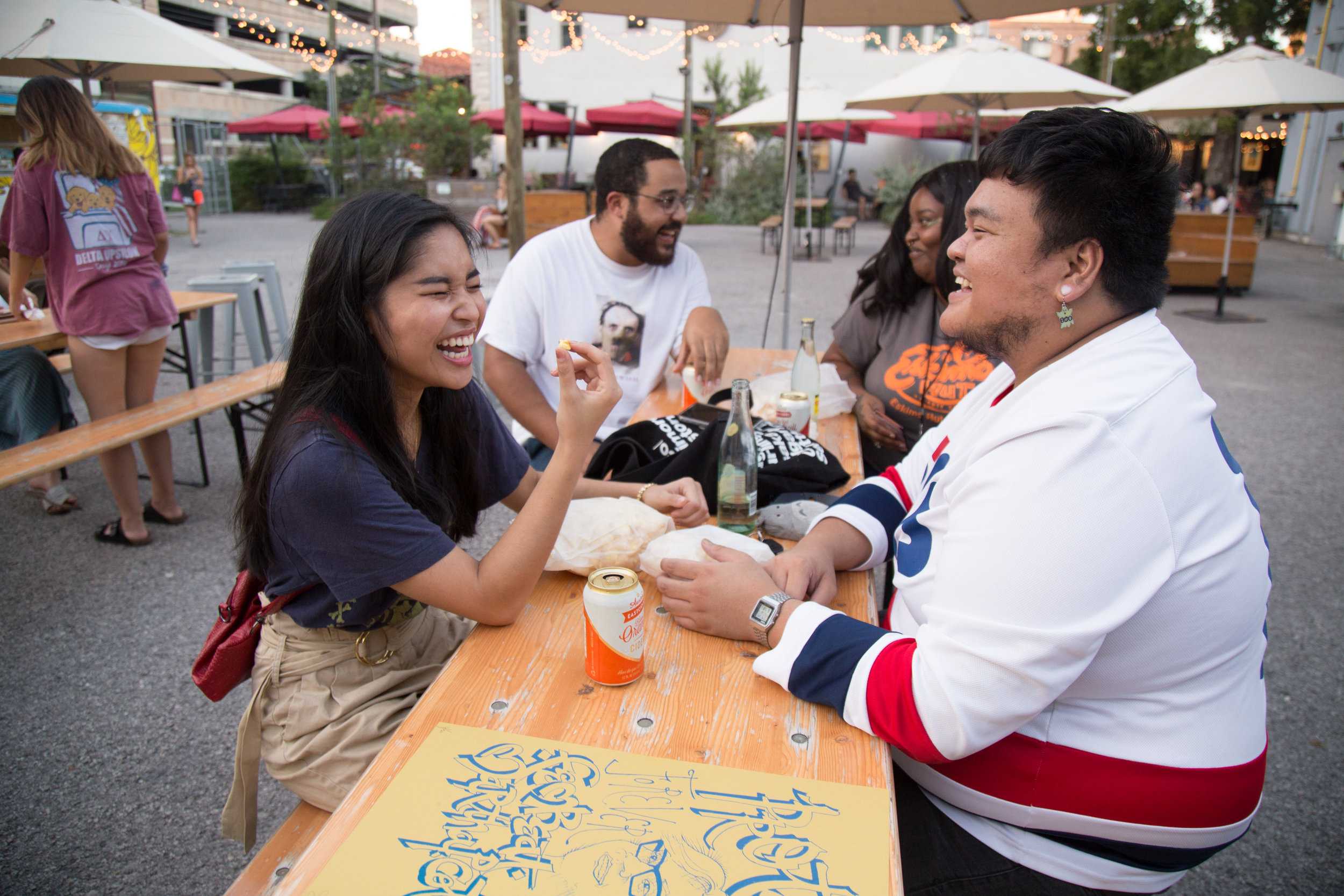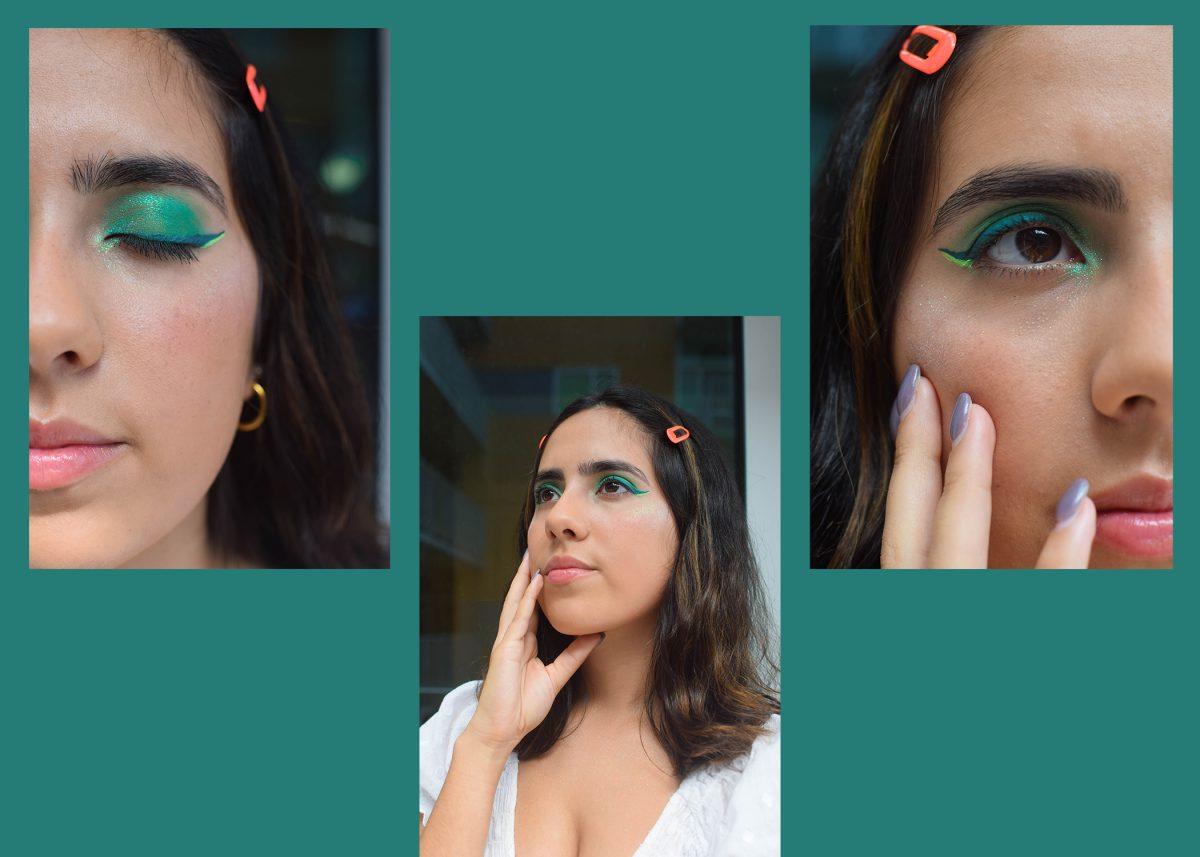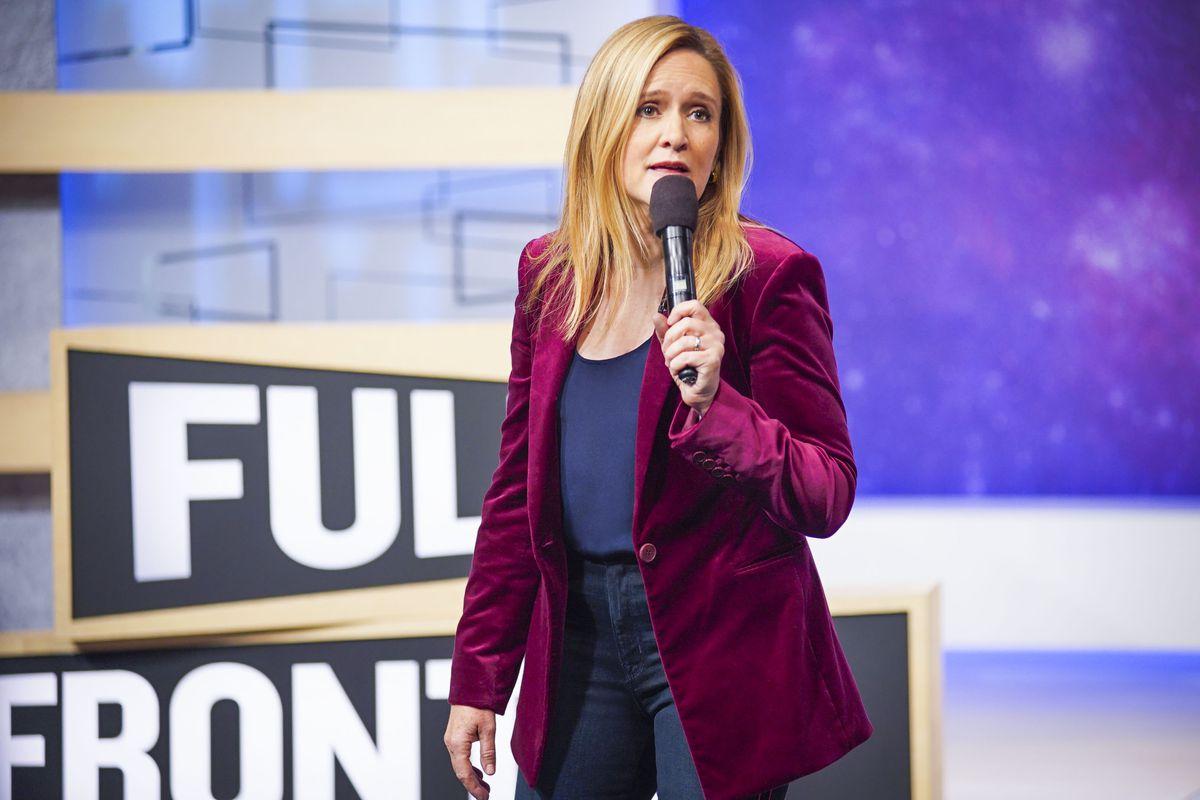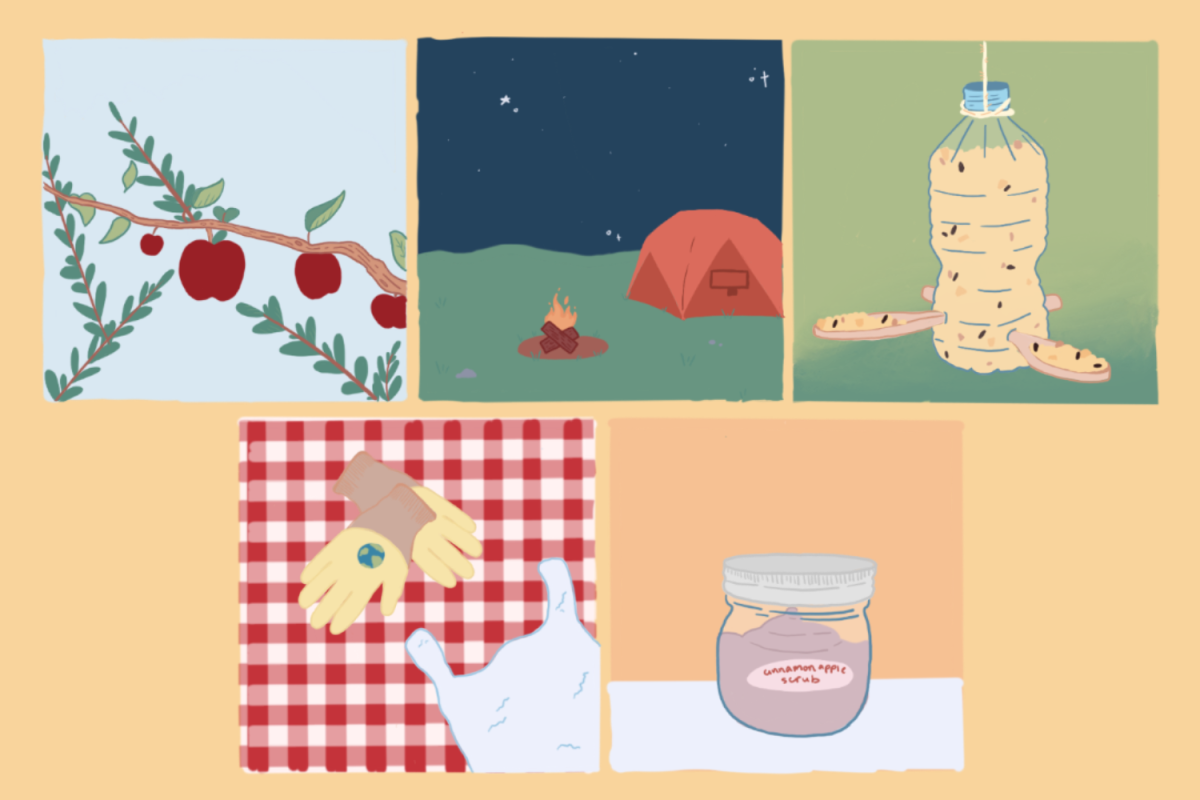The front table at the FemBeat Film Festival displayed merchandise and raffle prizes.
Being a woman of color and a filmmaker in Austin can sometimes feel like an oxymoron, especially in a city where so much of the industry is white and male-dominated. It is often left to women themselves to create spaces that will be accepting of their work and expression, a task that Samantha Skinner and Kayla Abuda Galang continue to work on.
Story by Namrata Prakash
Photos by Taylor Hall
Between making FemBeat, their documentary series, and hosting a film festival that features other filmmakers, Skinner and Galang are forcing the world to pay attention to the stories and livelihoods of self-identified women and non-binary people. The FemBeat Film Festival premiered on Oct. 4 from 6:30-9:00 p.m., ending with a headlining episode about Martha P. Cotera, an Austin-based Chicana organizer.
ORANGE Magazine sat down with the two women about their inspiration for the series, meeting amazing women all around the city, and where their filmmaking will take them in the long run.
Directors Illyana Bocanegra (right) and Kayla Abuda Galang (left) prepare for the screening to begin. Pictured is a still from a documentary featuring Austin hiphop artist, Blakchyl, as they discuss memories of growing up in East Austin.
When did you start FemBeat?
Kayla: Late 2014, fall semester. I was a super-senior at the University of Texas at Austin.
Samantha: Same, and it was for my documentary class.
Why is it important for the series to be Austin-based?
Samantha: There two parts to this story. For one, it was the stories we had access to, like our friends. I always felt like a cheerleader for my friends when they find success. I want to be front row at their shows and give them a platform. It’s important because change starts in your community.
Kayla: There are an abundance of stories to be told here, and we want to expand in the future. Austin is small but we keep finding community members doing great work.
What moment(s) led to the creation of the idea for this documentary series?
Kayla: My connection with Sam was personal, she reached out about a serial predator at the Radio-Television-Film program who was a visiting scholar. We had both dealt with him and there are so many other women he had preyed on. At some point, Sam assembled a meeting of women to talk about what happened, and was one of the first people who encouraged me to report. It was the first time I felt I had a safe space where it was comfortable to talk about things. Feeling safe with Sam made us better partners and let us do a series that dealt so intimately with other people’s lives.
Samantha: Whenever we’re talking about trauma, shame and silencing happens along with that and people carry pain whether they realize it or not. When you find other people to talk to in a safe environment it is life-changing and experiencing that together made us want to look at different industries with other people.
How did you find Martha P. Cotera, the subject of the episode you screened last night?
Samantha: Our really good friend Savanha Esquivel is pursuing their master’s degree in public history at Texas State University and pitched this episode idea to us. They have an interest in Chicanx history and preservation, and in their research they came across Martha, and learned she was in Austin and we decided we needed to do an episode on her. She’s so old but still radical as heck. I love that she hasn’t gotten jaded and never stopped.
Kayla: Another thing that was important to me was that she’s older but doesn’t make any ageist comments about “wait ‘til you grow up and wait ‘til you become a mother” about feminism.
Tell us about creating Martha’s episode.
Kayla: It was the longest episode we filmed, it took almost a year because she’s busy traveling, at protests and working. It’s funny because we started filming September of last year and only filmed her four or five times but it was so spread out. She talks to us like we’re old friends, she keeps snacks and drinks in the living room when we’re there and talks for hours on end. She’s a wealth of information and resources.
Samantha: What Kayla said, the first time we met her she welcomed us like family and gave us wine and chips gave us a huge hug and had so much warmth and love to her. She also has tons of radical ideas of course, but is so busy and casual about things. She texted us once like “Hey, I’m coming to Houston for the IWY (International Women’s Year) conference wanna come?” We had no press pass or crew pass. We both worked full-time but dropped everything to go. Gloria Steinem was supposed to be there and honoring Martha, but some airline messed up and she couldn’t come and they Skyped her in but it was definitely a moment where I felt like a real documentarian, out there.”
The crowd fills up as the screenings continue, creating an engaged and supportive atmosphere.
Why was it important to have mostly women in the crew for this project?
Kayla: I immediately think about film school, men are constantly condescending and drive you crazy with jargon like they’re trying to test you or quiz you. Men don’t believe my abilities around the bat, and in my film classes all of the guys would rush up to light and not let girls mess with it. We think it’s important to have women queuing up and taking technical positions in a safe and understanding environment.
Samantha: Between film school, being an audio engineer and doing music, I was involved in male-dominated, misogynistic spaces. Overtly and subtly, people doubted and challenged me all the time. I realized on all-women sets it didn’t happen anymore, we were believing and supporting each other. I love that we get to create that “we’re the boss and the crew” environment and have a non-hierarchical structure where we are emotionally literate when something happens. Now whenever I’m on sets with men I’m reminded why I love FemBeat so much.
What has been your favorite response to the series?
Samantha: My favorite response has been in the form of our team growing, because now when we put out volunteer calls, a lot of people apply who are talented and excited to work. We have no funding and have to work for free and that can be very uncomfortable because I value people’s time and skills, and when people want to work with us regardless that’s my favorite response.
Kayla: I love our team. It’s wild every time I see people show up at any capacity for FemBeat. We have biweekly meetings where we have people talk about our show and growth. Last night, our editor Valerie watched the episode for the first time and it was important to her and she saw a sliver of important history she did not know about. We often have no idea about this rich Chicana history in Austin and I get jaded sometimes because it throws a facade of being a progressive place, but to know this now is amazing.
Why did you choose to showcase other short films made by self-identified/non-binary womxn, and not just make it about FemBeat?
Kayla: Why not? I really love showing other films beside FemBeat, to have a space for women to showcase their work because it doesn’t typically happen informally in other places. Last night yielded so many good questions, so much community and it was so cool to see other filmmakers I know didn’t know connected over storytelling.
Featured director, Allison Lopez, and Philip Olalo joke around before the showings begin. Her film, “Death of a Nation,” tells the story of a group of friends who fight against white supremacism on their college campus.
In addition to FemBeat’s own work, the festival featured short films or snippets of work from Allison Lopez, Illyana Bocanegra, Funmi Ogunro, Mei Makino and Evelyn Ngugi, and hosted a Q&A session about the work process and advice for young female filmmakers.
FemBeat’s other episodes cover musician Claire Puckett, magazine creator Fabi Reyna, fashion designer Alice Giacconi, the nonprofit social justice organization Counterbalance, and Latinx women who are reclaiming the word Chingonas.
You can watch these episodes and keep up with the series here.































